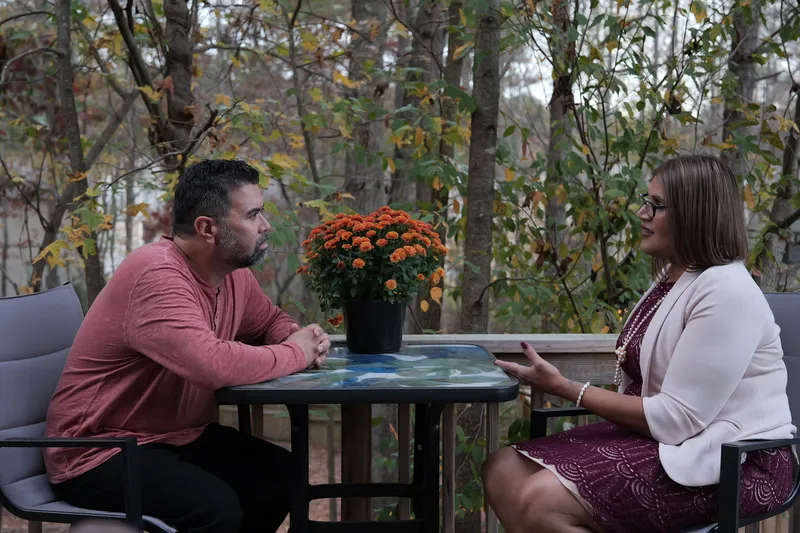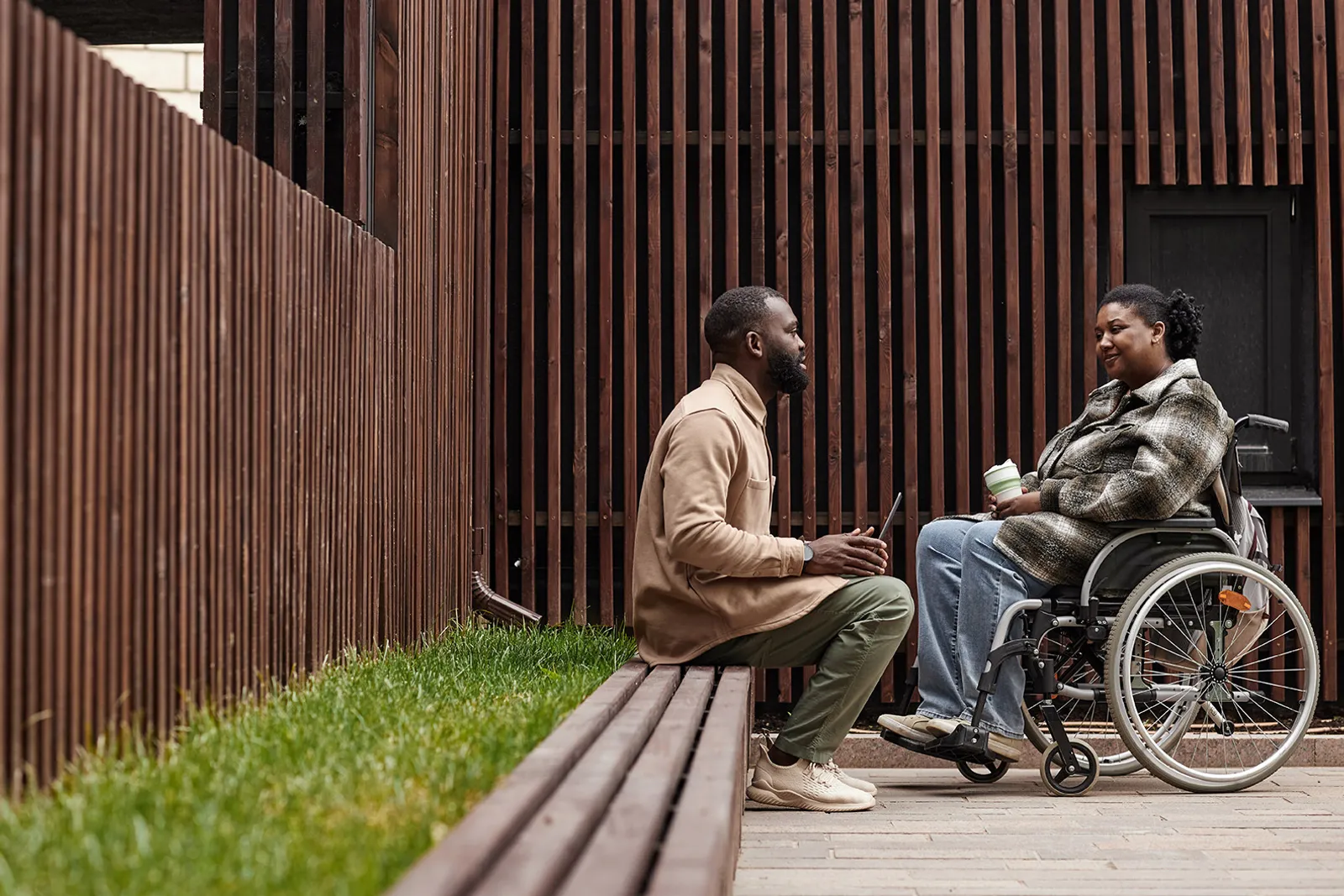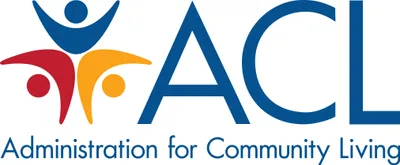
Chronic health issues & disabilities

What is it?
Chronic health issues and disabilities are common conditions anyone can be faced with—in some cases, at the same time—that may impact overall functioning and mental health.
Chronic health issues are long-lasting medical conditions that require ongoing medical care. Nearly half of the U.S. population has at least one chronic health issue. They’re even more common among adults 65 or older—80% have at least one, and 68% have two or more issues.1 These challenges usually require support or ongoing care and can make it difficult to enjoy daily life. Cancer, heart disease, pain, diabetes, arthritis and Alzheimer's are common examples.
Disabilities are conditions that limit a person’s interactions with the world. One out of four U.S. adults live with at least one disability.
Disabilities can impair body or mind functions, limit common activities like seeing or hearing, or restrict participation in daily activities such as work and social life. These can be temporary or ongoing; observed or “hidden.” Disabilities can affect people in a variety of ways, and even the same disability might affect two people differently.
If you have a disability, you might experience changes in your vision, movement, thinking, memory and learning—any of which could affect how you communicate to others, how you navigate your relationships, and your overall mindset.
While chronic health issues and disabilities are often long-term conditions and may look a little different for everyone, they can be managed. Despite unfounded negative stereotypes, people with chronic health issues and people with disabilities live productive, empowered and fulfilling lives.
What's causing it?
Interconnected factors can cause chronic health issues and disabilities. When you age, your risk of chronic health issues increases. And, chronic health issues can lead to disabilities. Biology, whether your own genetic traits or the environment around you, can play a role, too.
Chronic health issues can arise from a combination of genetic, physical, environmental and lifestyle factors. Chronic conditions last more than a year and require ongoing medical attention. They may also limit your ability to do day-to-day activities.
Biological factors such as aging, genetics and our physical environment can play a role in chronic health issues, too. Certain behaviors such as using tobacco, eating a poor diet, having a sedentary lifestyle (lack of exercise or physical activity) and drinking excessive amounts of alcohol can also cause or contribute to health challenges.
Disabilities have many causes, including injuries or conditions you’re born with; however, chronic health issues are the leading cause of disabilities in the U.S. When a chronic condition affects your body or mind to a degree in which your everyday activities and interactions are limited, it can be considered a disability. For example, diabetes might lead to vision loss, or anxiety could prevent you from being able to do your job.
How should I deal with it?
As people age, they are more likely to continually develop health challenges that may be disabling. Being diagnosed with a chronic health issue or developing a disability are major changes that may trigger feelings of loss for the way life used to be.
It’s important to allow yourself to experience your emotions so you can accept reality and move forward. It’s also important to understand that while aging and chronic health conditions are normal, there are still ways to feel in control of your medical situation so that it has minimal interference with the life you want to live.
Though the transition can be difficult, it is possible for you to manage—and even lessen—the impact of your conditions on your emotional health. Looking for moments of gratitude, keeping up with your medical care, getting support from family and friends and prioritizing your well-being can help you thrive and enjoy your life. Mental health professionals can also help you with this transition.
Depending on your situation, there may also be legal protections and government resources available for navigating the workplace, accessing health care or dealing with financial issues, which could alleviate some of the stress.
Things to Try
-
If you're going through a challenging time, think about who you feel comfortable with, and what interactions might feel supportive so you can tell people what you need—whether it's talking about how you’re feeling so you can release some pent-up emotions, or finding comfort by time together with no words exchanged.Explore More
-
Create a sleep routine
Creating a sleep routine (also referred to as practicing sleep hygiene) is something nice you can do for yourself to wind down at night and improve your chances at getting enough sleep (7-9 hours) and high quality sleep. Setting a "device curfew", going to bed at the same time each night, keeping your bedroom cool and dark, and doing calming activities like taking a bath, journaling, reading, or meditating are all good things to try. Charging your phone outside of your bedroom is also great if you can manage it—getting an alarm clock can help!Explore More -
Invest in a weighted blanket
TLDR: Weighted blankets work. Weighted vests even work for our animal friends! And there are even weighted stuffed animals.The science is simple: It's like being tucked in – safe and secure – or like a big hug from someone you love. The weight in a weighted blanket is proven to help settle nerves and improve sleep, which in turn has all sorts of benefits for your health.Explore More
What can I do now?
- Helpline24-hour Deaf Crisis Line | DeafLEAD
- Helpline | Online Live ChatDisability and Information Access Line (DIAL) | Administration for Community Living (ACL)
-
Online directory | Support groupFind Support Groups | Mental Health America
Citations
- National Council on Aging. Top 10 Most Common Chronic Conditions in Older Adults



